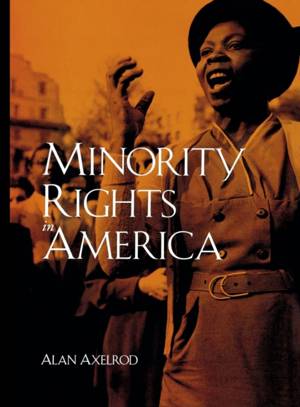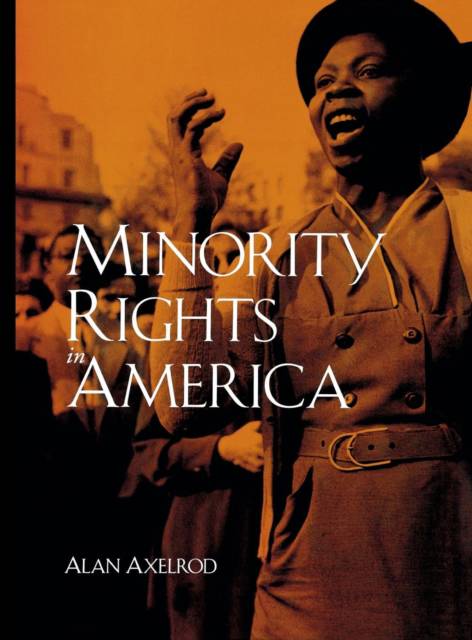
- Retrait gratuit dans votre magasin Club
- 7.000.000 titres dans notre catalogue
- Payer en toute sécurité
- Toujours un magasin près de chez vous
- Retrait gratuit dans votre magasin Club
- 7.000.0000 titres dans notre catalogue
- Payer en toute sécurité
- Toujours un magasin près de chez vous
Description
Ever since the Dominican missionary Bartolom de Las Casas (1476-1566) first raised civil and minority rights issues in an American context, they have figured prominently among some of the most profound and trying moments in American history.
Minority Rights in America consists of approximately 600 engagingly written alphabetically arranged entries on civil rights, political rights, and social rights in America since the days of Christopher Columbus. The rights of all Americans are included, with particular attention to African Americans, Asian Americans, Hispanic Americans, women, and other minority groups. Many of the entries include suggested readings to facilitate additional research and understanding.
Entries include:
- Biographical sketches of important historical figures who participated in the struggle to advance minority rights
- Important topics, organizations, and critical events
- Supreme Court cases, federal laws, and governmental agencies.
Rounding out this comprehensive reference are three useful appendixes and a consolidated bibliography. Appendixes include:
- Excerpts of more than seventy-five important documents organized logically in six parts: historic documents, historic speeches and writings, historic legislation, Supreme Court decisions, rights activism documents, and documents from U.S. government agencies
- Contact information for more than sixty associations and civil rights organizations
- A list, with full citations, of the court cases mentioned in the volume.
Sample of encyclopedic entries: Jane Addams, Affirmative action, AIDS and rights, Antisemitism, Ross Barnett, Bonus Army, Chicano studies, Shirley Chisholm, Clayton Act, Congress of Racial, Equality (CORE), Conscientious objectors, Crazy Horse, Defense of Marriage Act, Employment at will, Medgar Evers, Farm labor rights, Orval Faubus, Gerrymandering, Gray Panthers, Angelina Grimke, Haymarket Riot, J. Edgar Hoover, Langston Hughes, Indian Citizenship Act, Japanese internment, Jim Crow laws, Bartolom de Las Casas, Loving v. Virginia, Megan's Law, Million Man March, Ralph Nader, National Immigration, William Penn, Puritan Separatist, Rap music, Right to die, Margaret Sanger, Smokers' rights, Southern Governors, Association Trail of Tears, Voting Rights Act of 1965, Harold Washington, Youth Law Center, John Peter Zenger.
Spécifications
Parties prenantes
- Auteur(s) :
- Editeur:
Contenu
- Nombre de pages :
- 432
- Langue:
- Anglais
Caractéristiques
- EAN:
- 9781568026855
- Date de parution :
- 20-11-02
- Format:
- Livre relié
- Format numérique:
- Genaaid
- Dimensions :
- 219 mm x 285 mm
- Poids :
- 1301 g

Les avis
Nous publions uniquement les avis qui respectent les conditions requises. Consultez nos conditions pour les avis.






